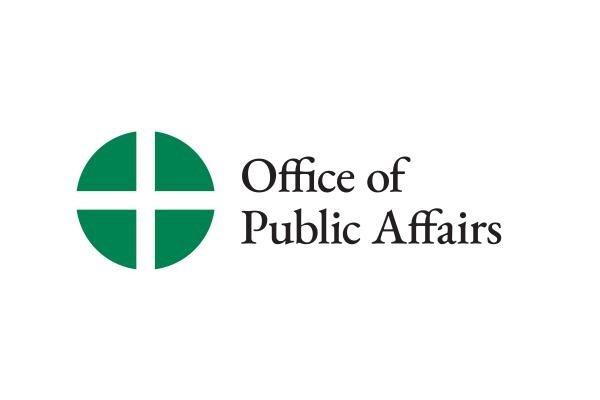Midwest Catholic-Muslim Dialogue Begins Report on Role of Religion in Civic Life
WASHINGTON (November 10, 2010) —The Midwest Catholic-Muslim Dialogue gathered in Milwaukee for its 14th annual meeting, October 25-26, to begin drafting a report on the role of religion in civic life.
WASHINGTON (November 10, 2010) —The Midwest Catholic-Muslim Dialogue gathered in Milwaukee for its 14th annual meeting, October 25-26, to begin drafting a report on the role of religion in civic life. The report, which has the working title, “The Role of Religion in Civic Life: Catholics and Muslims Together in the Public Square,” will present the insights of the dialogue’s work over the last three years. Members of the dialogue noted that in the present cultural environment, in which many people are challenging the right for organized religion to participate in public discourse, a report on the issue is timely.
The prominence of issues involving Islam in the news media—such as the threatened burning of the Qur’an by a pastor in Gainesville, Florida, and the building of a Muslim Community Center in Lower Manhattan near Ground Zero—was discussed by both co-chairs of the dialogue in their opening remarks. Dr. Sayyid Syeed, Muslim co-chair, said how edified he was by the response of the interreligious community to these issues. Reflecting on his experiences at the Interreligious Summit on September 7, he said, “The issue was much bigger than just one mosque. Our partners in dialogue understood it as an attack not just on Muslims, but upon America itself.” Syeed went on to discuss how the existence of an “infrastructure of interreligious relationships” is essential to addressing areas of common concern effectively.
Through his delegate, Father Jeffrey Day, Catholic co-chair, Bishop Francis Reiss, auxiliary bishop of Detroit, pointed out how the insights of Rev. Dr. Michael Kinnamon of the National Council of Churches could shed light on interreligious relations. He appreciated how Kinnamon points out that relationships between followers of different religious traditions tend to progress from competition to coexistence, from coexistence to cooperation, and from cooperation to commitment.
“We Catholics were first persecuted for our faith when we began to arrive in great numbers in this country a century and a half ago,” Father Day said. “Thus, we are very sensitive to the situation of Muslims in this country who are facing similar discrimination based solely on their faith. Given the current socio-political environment and what is at stake for all of us as people of faith, I believe that it is necessary for us to continue to strive for a relationship where Catholics and Muslims are truly committed to each other’s welfare.”
As they begin the drafting process, the members of the dialogue will explore how Catholics and Muslims engage in the civic life and how they might more effectively do that together. The paper, which is expected to be completed in October, 2012, will first look at general principles such as the need for a theological voice in the public square as well as challenges and obstacles to such engagement. Specific topics will include the life and dignity of the human person, the basics of faithful citizenship, human sexuality, family life and immigration.
Dialogue member Scott Alexander, Ph.D., of Catholic Theological Union, Chicago, gave a presentation entitled, “Islam, Muslims, and the Current Global Context: What U.S. Catholics Need to Know.” Alexander addressed many of the current questions U.S. Catholics have about Islam and Muslims. He emphasized that while a dynamic of “dialogue and confrontation” was once the norm in Catholic-Muslim relations throughout the centuries, since the Second Vatican Council, the Church “unequivocally articulates [its] position to be one of dialogue and cooperation, especially with Muslim peoples” as expressed in Section 3 of Nostra Aetate, the Declaration on the Church’s Relations with Non-Christian Religions in 1965. Zeki Saritoprak, Ph.D., who holds the Nursi Chair in Islamic Studies at John Carroll University, Cleveland, gave a very positive response to the presentation from a Muslim point of view.
Catholic dialogue members present included Dr. Scott Alexander; Father Thomas Baima, University of Saint Mary of the Lake, Mundelein; Father David Bruning, Diocese of Toledo; Father Jeffrey Day; Mrs. Judith Longdin, Archdiocese of Milwaukee; Sister Helene Mercier, OSB, Monastic Interreligious Dialogue; Father Raymond Webb, University of Saint Mary of the Lake, Mundelein; and Father Leo Walsh, United States Conference of Catholic Bishops’ (USCCB) Secretariat of Ecumenical and Interreligious Dialogue.
Muslim dialogue members attending included Dr. Ghulam-Haider Aasi, American Islamic College; Mr. Victor Begg, Council of Islamic Organizations of Michigan; Ms. Insharah Farhoud, Islamic Society of Milwaukee; Dr. Irfan Omar, Professor of Islamic Studies, Marquette University; Dr. Zeki Saritoprak; Dr. Zufilqar Ali Shah, Islamic Center of Milwaukee; and Dr. Sayyid Syeed, co-chair.
The dialogue has been jointly sponsored since 1996 by the USCCB Committee for Ecumenical and Interreligious Affairs and the Islamic Society of North America (ISNA).
---
Keywords: Midwest Catholic-Muslim Dialogue, Islam, United States Conference of Catholic Bishops, Committee on Ecumenical and Interreligious Affairs

